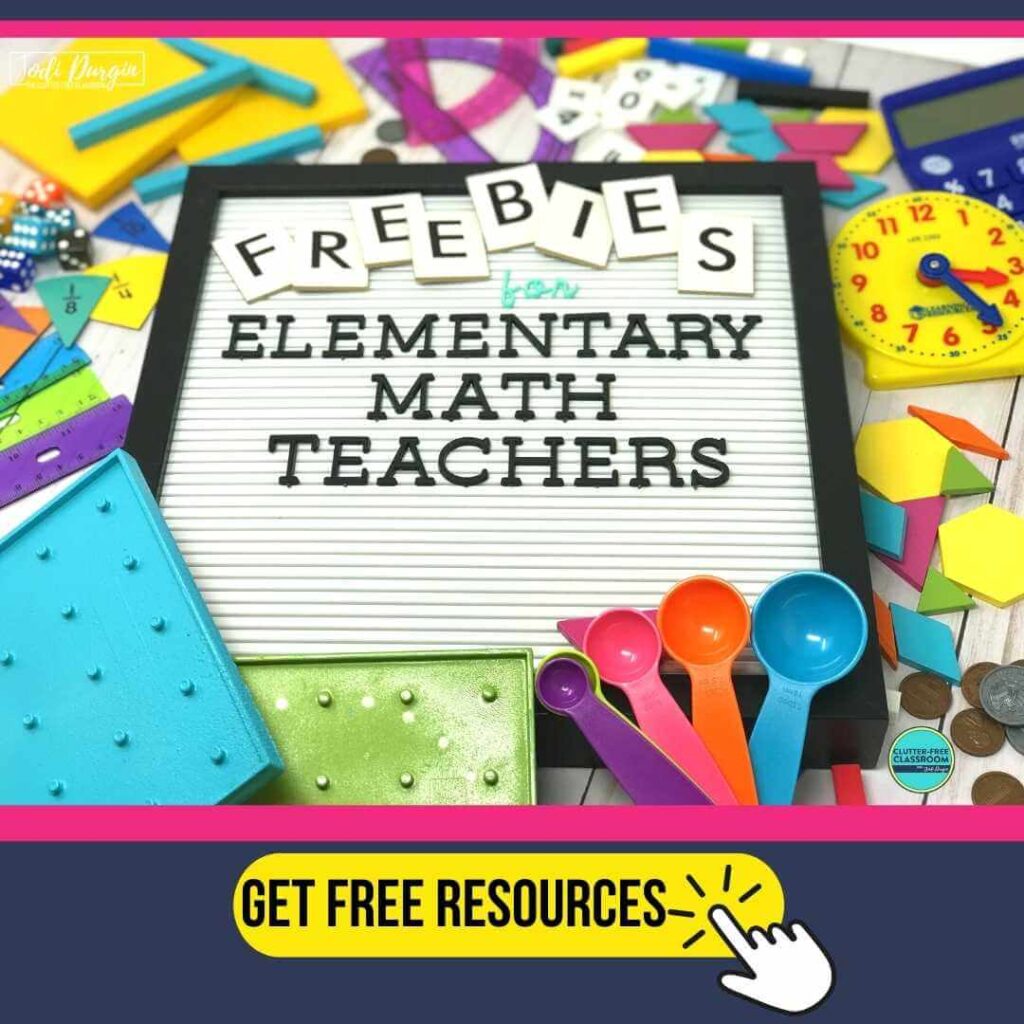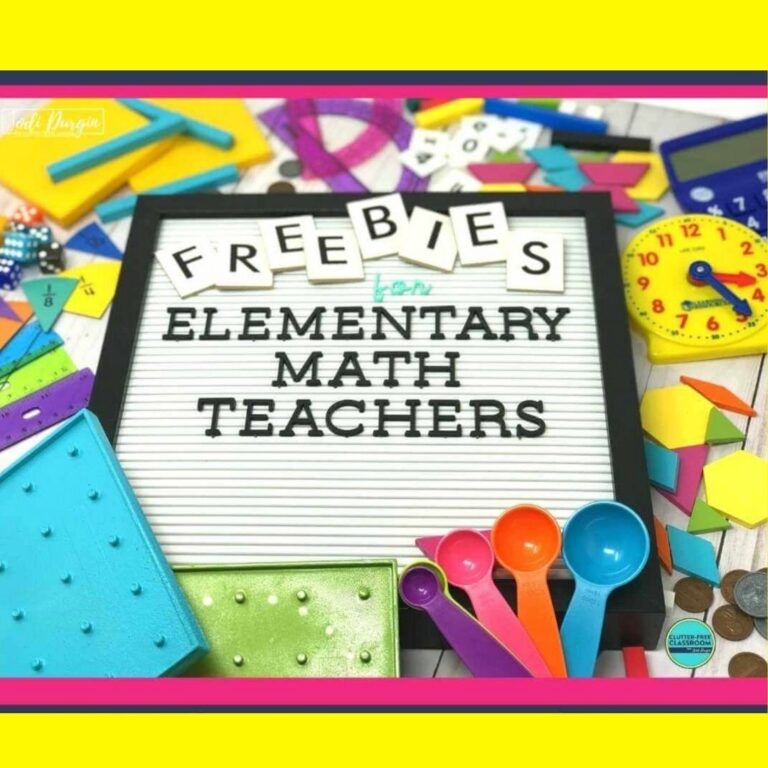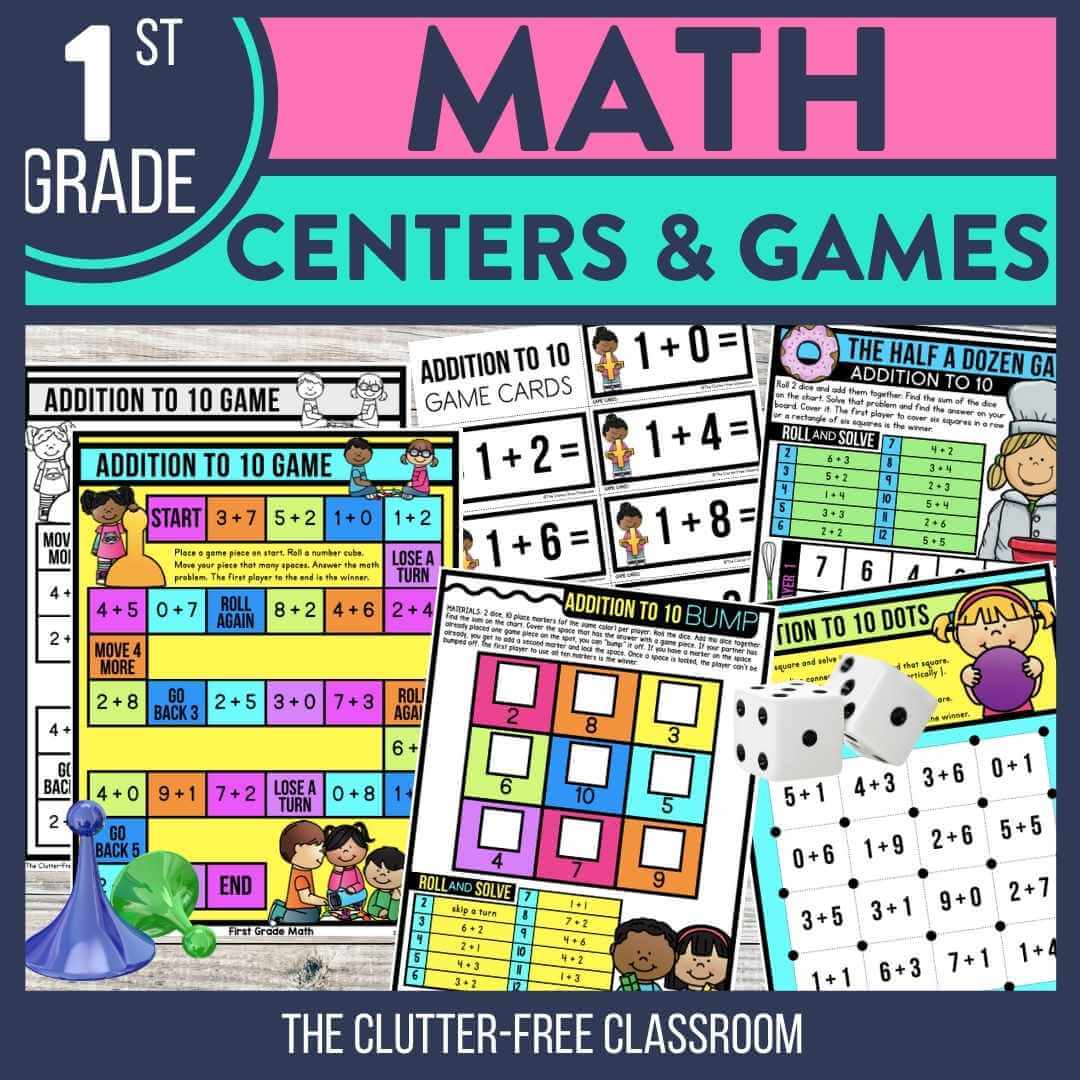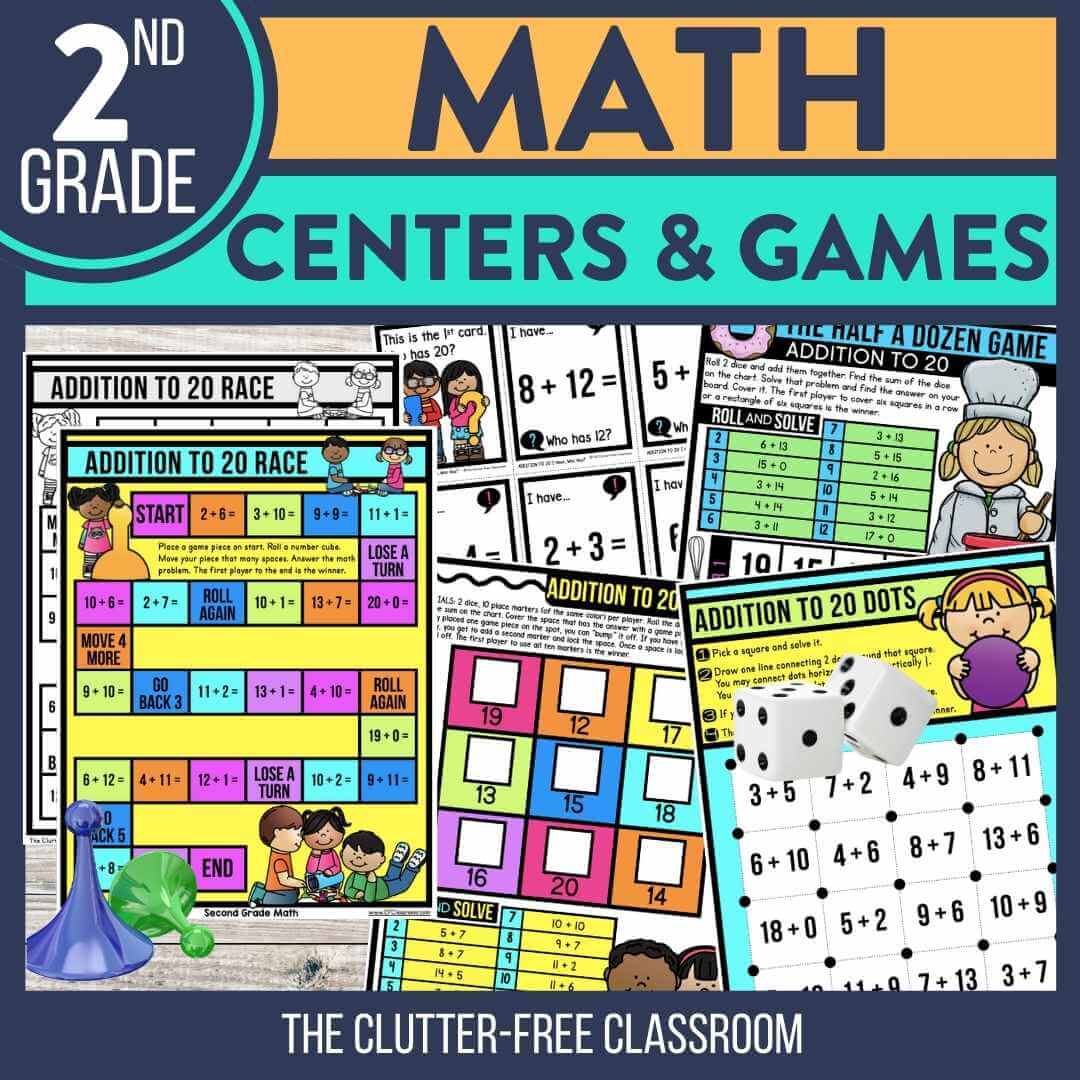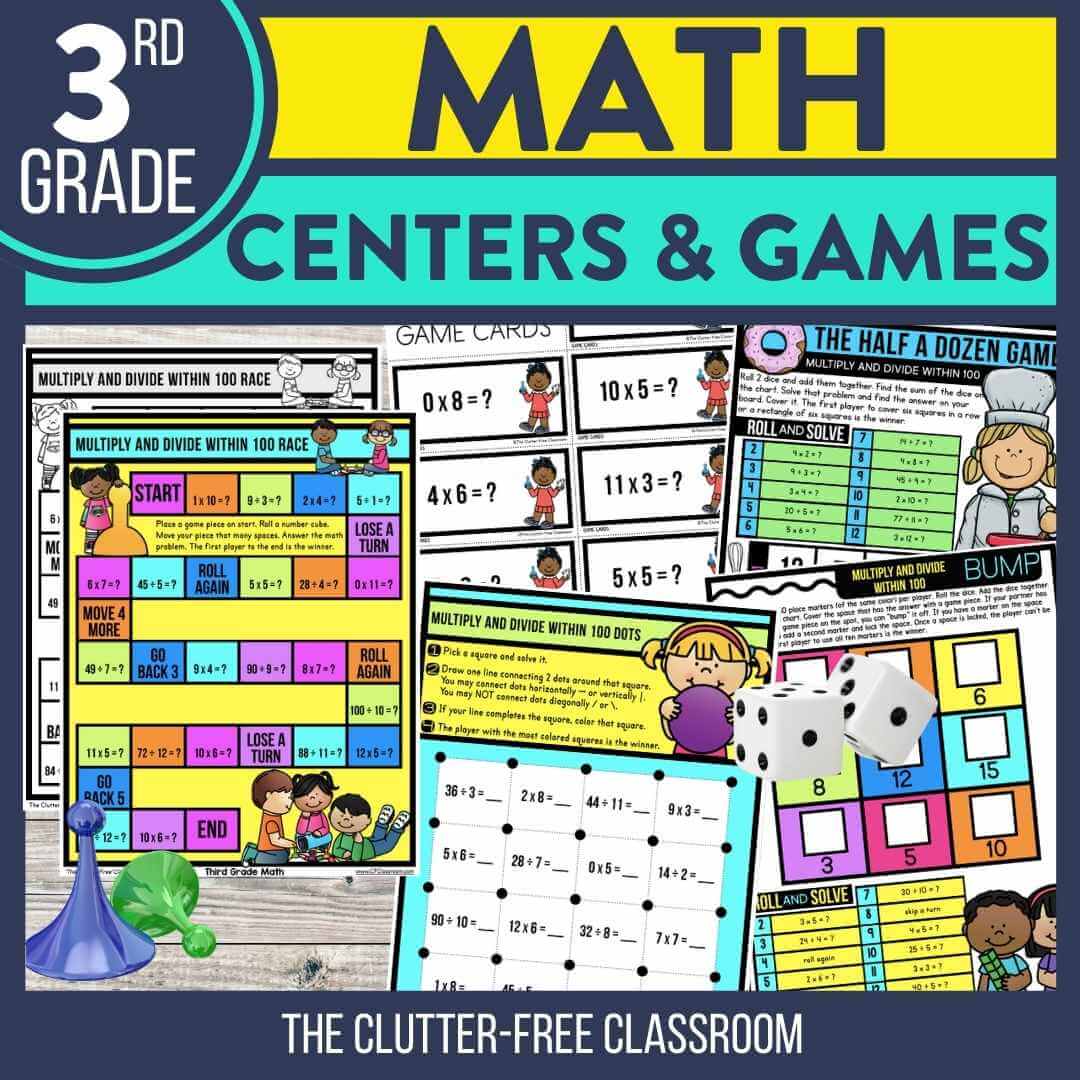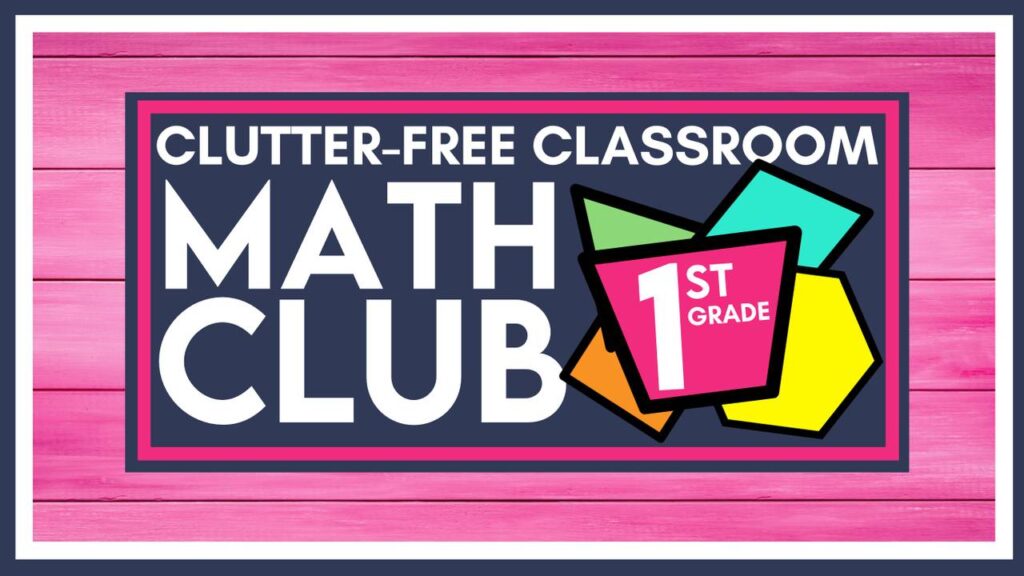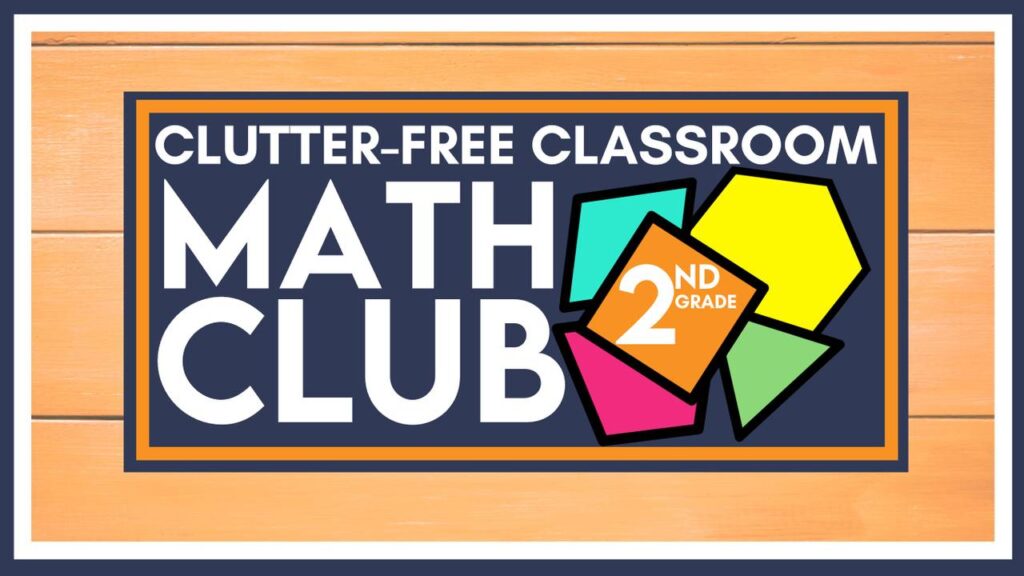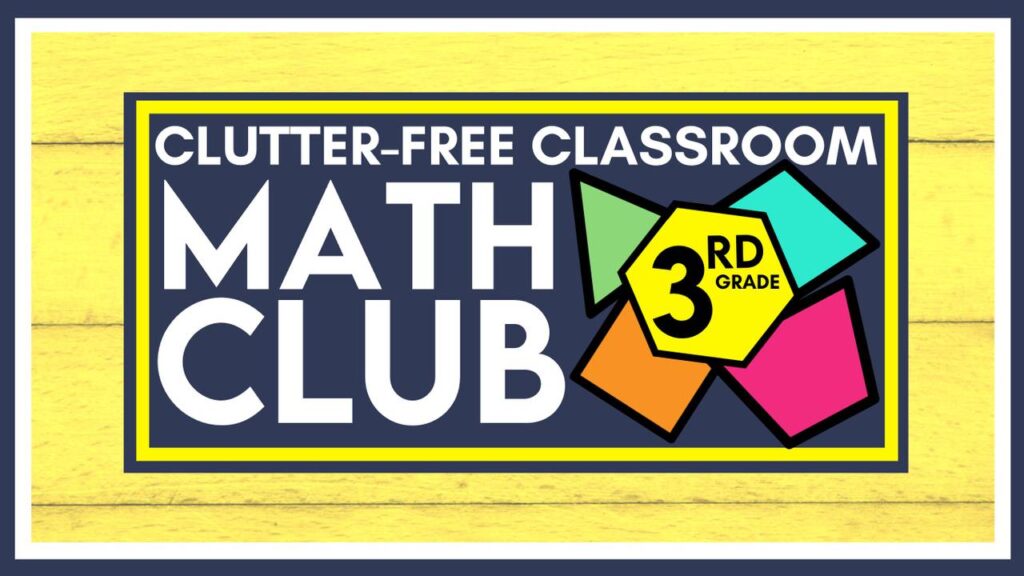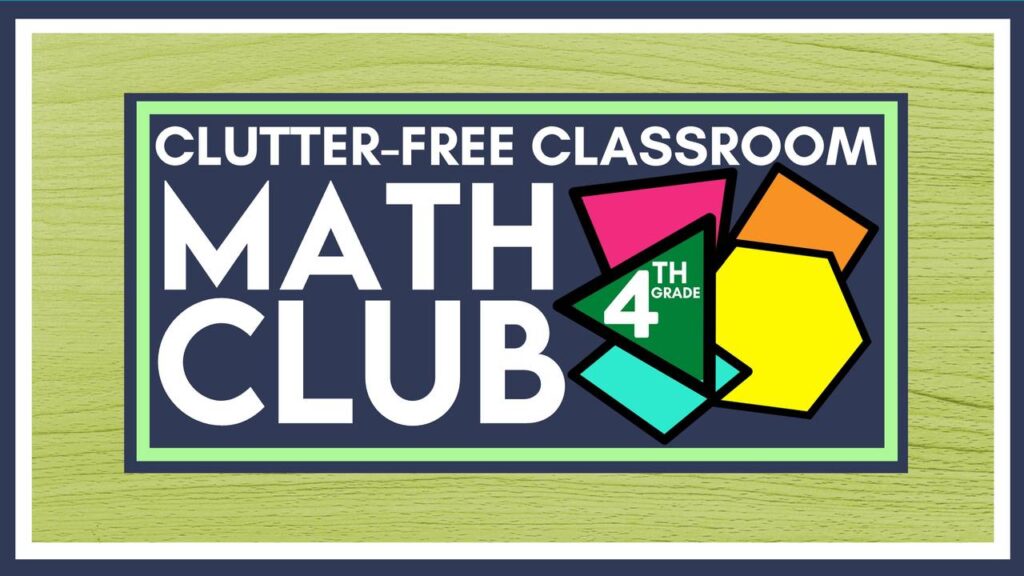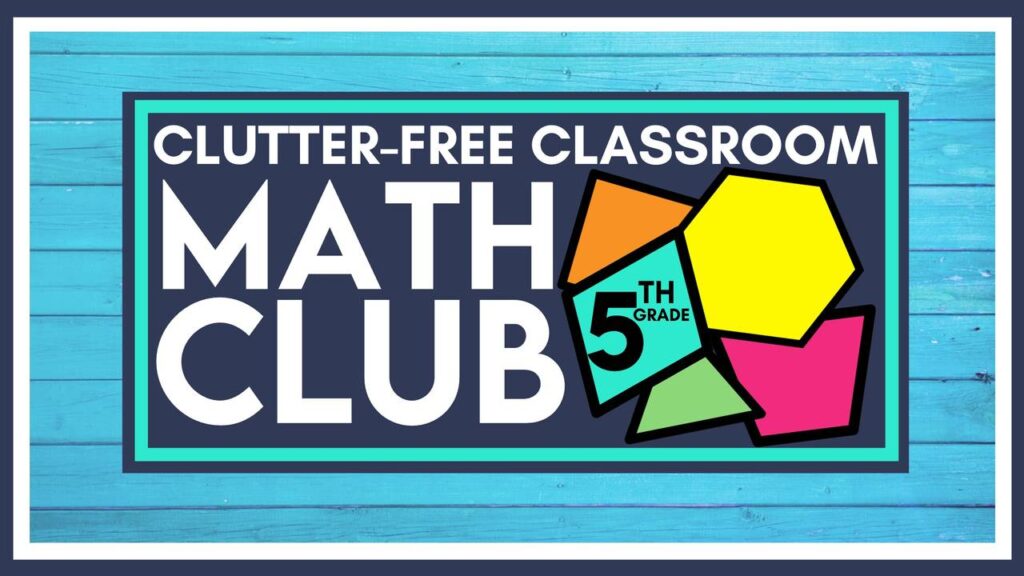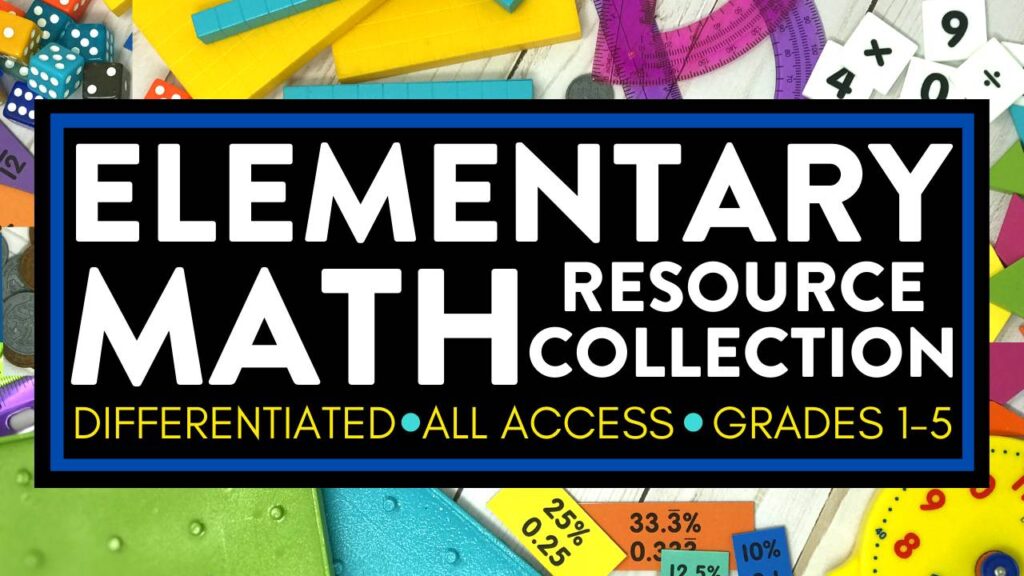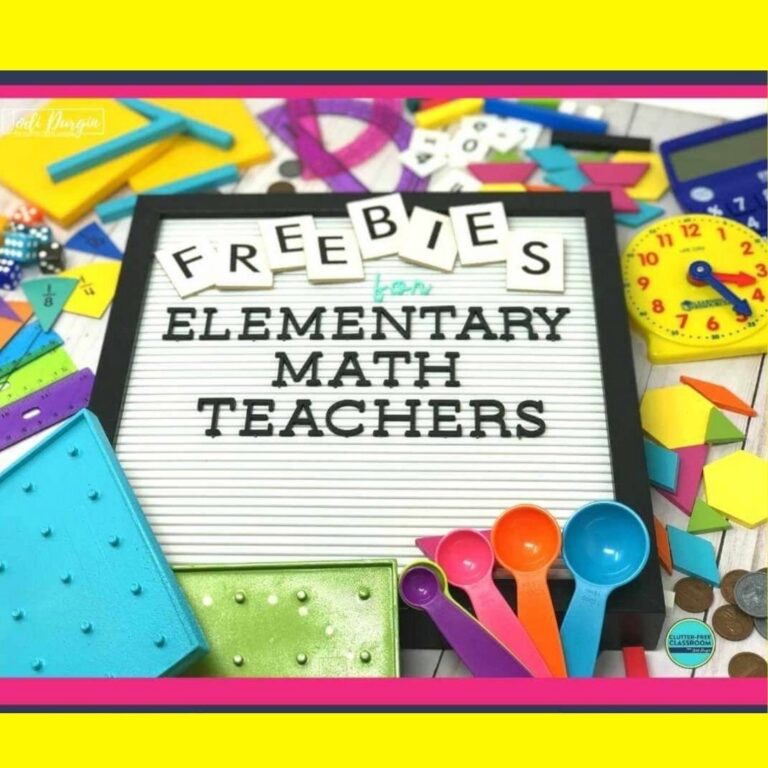Math centers, also commonly referred to as math stations or math rotations, are a great way to offer fun and engaging learning experiences to elementary students during your math block. They fit neatly in the math workshop with guided math framework, but can be used without the implementation of that structure as well. Get tons of math center ideas below!
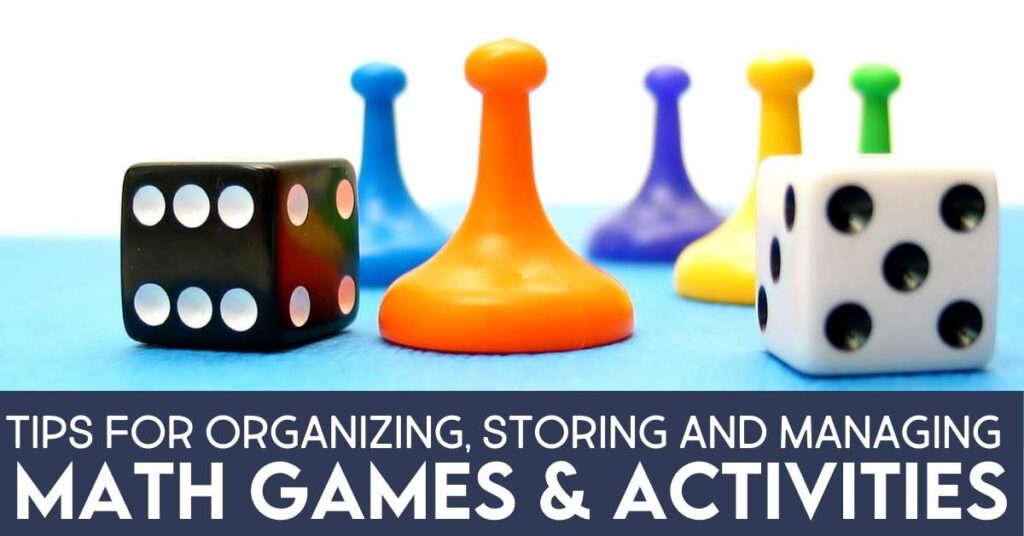
This blog post will answer the following questions:
- What are math centers?
- Why are math centers important?
- What are the benefits of students playing math games during centers?
- What are the benefits of assigning math games for homework?
- How do I organize my math centers?
- What is the best way to introduce a new math game to my class?
- How do I hold my students accountable when they are playing math games during center time?
- Do you have any classroom management strategies for math center time?
- What are the best math board games, card games, and printable games for elementary students?
What are Math Centers?
Math centers, also commonly called math stations, are different places in your classroom where students are working independently, with partners, or a small group on a learning task. These learning experiences provide students with opportunities to practice previously-taught skills.
Math centers are a component of the Math Workshop with Guided Math framework. I created the acronym M.A.T.H. for my math centers when I was a third grade teacher. I go into great detail into this with my guided math workshop course (coming soon), but M stands for math facts. A stands for at your seat. T stands for teacher’s choice. H stands for hands-on. Using this math stations acronym for the names of my math work stations made setting up and running math stations very easy! The four types of math centers gave me the structure and flexibility I needed to maintain consistent procedures and routines while meeting the needs of each of my students.
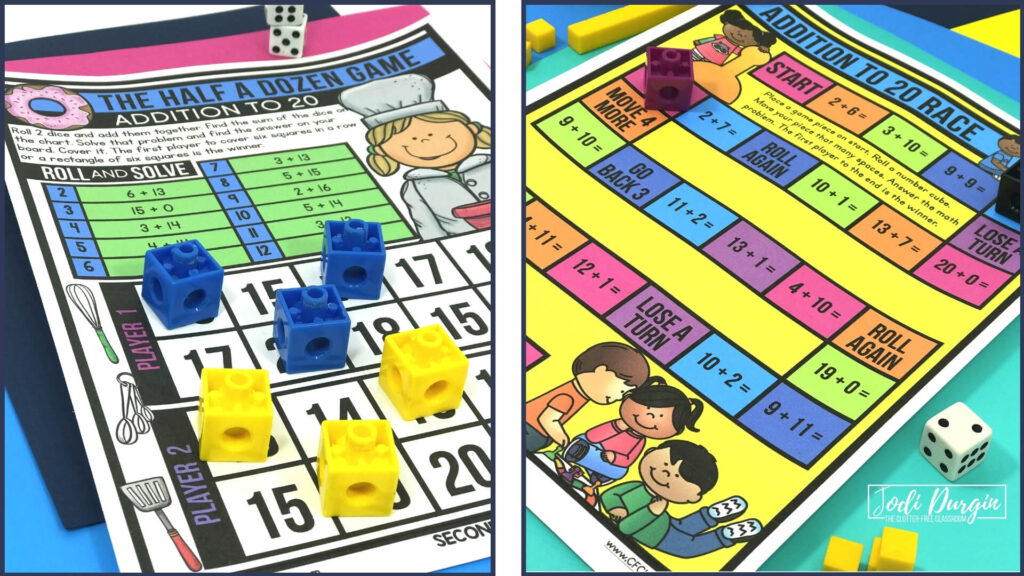
Why are Math Centers Important?
Math centers are important because they give students the opportunity to practice previously-taught skills in a fun and engaging way. This helps them maintain and deepen their understanding of grade level concepts or skills. It also provides learning experiences where they can work independently, with a partner or small group without teacher support. This promotes problem solving practice. It also gives the teacher the opportunity to meet with a small guided math group to meet students’ individual needs through differentiated instruction.

Benefits of Playing Games during Math Centers
There are so many benefits to students playing math games during math center time. I found that games fit perfectly within the H (hands-on) center of my guided math workshop framework. Playing math games during math stations is beneficial because they…
- build math fluency.
- deepen students’ number sense.
- develop a love of math within students.
- engage learners effectively.
- provide opportunities to practice and apply concepts and skills.
- encourage internalization of different strategies and their connectedness.
- strengthen students’ understanding of numbers.
- empower students to work autonomously.
- give students the opportunity to practice communication skills.
- can serve as a formative assessment.
- allow teachers to pull a small group or work with students one-on-one.
- lend themselves to differentiation.
- provide students the opportunity to apply math talk in an authentic context.
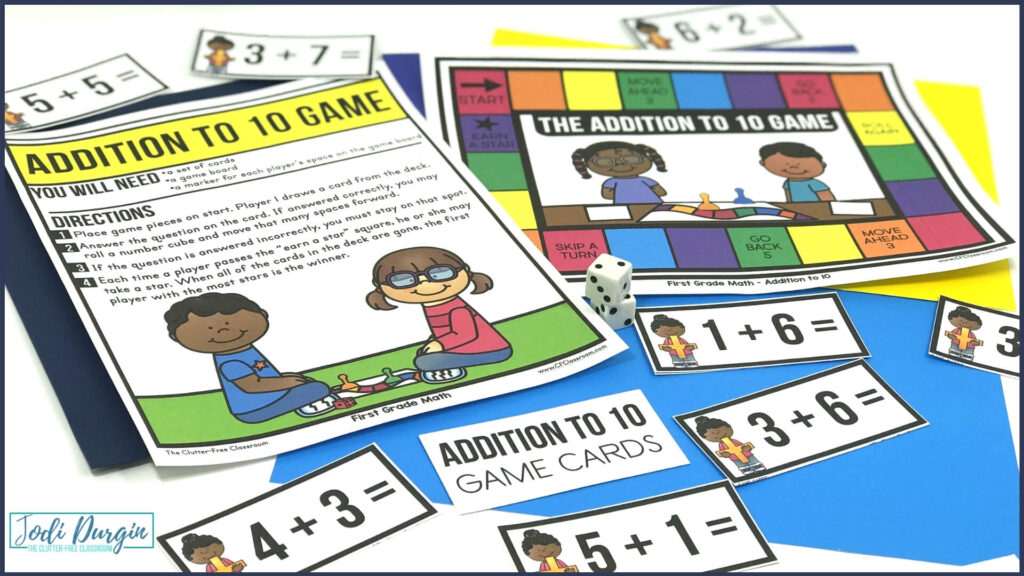
5 Benefits Of Using Math Games As Homework
Math games are great for math work stations in the classroom, but they are also good for homework. Here are 5 reasons why math games are great for homework.
They…
- promote family engagement in math
- help reinforce concepts and skills
- build fluency
- improve students’ attitudes toward homework
- help develop a love of math within students
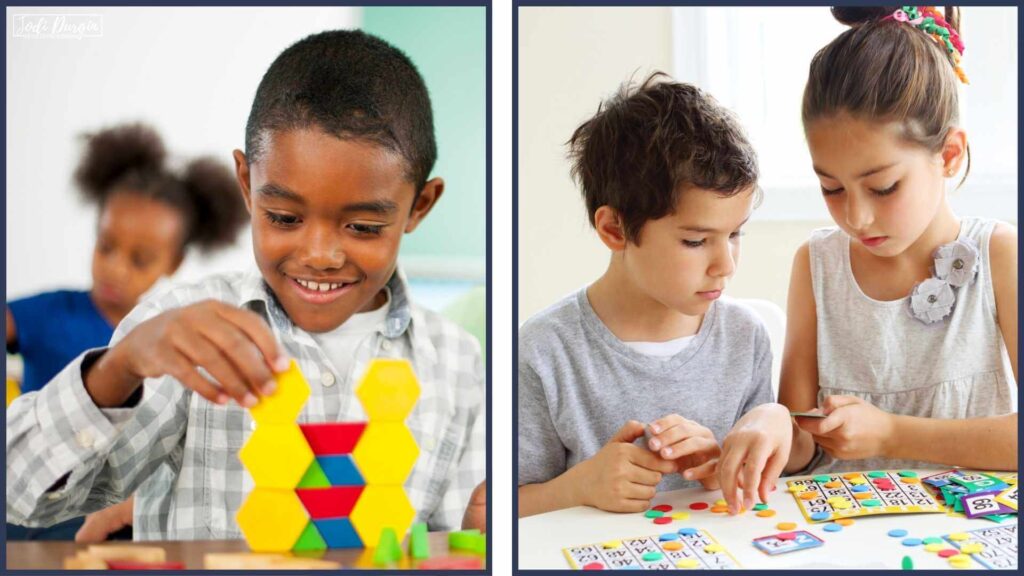
Ideas for How to Organize your Math Center Games
There are so many different strategies for how to store and organize your math games and centers. No matter what organizational tool or system you decide is best for you and your classroom, consider using labels that identify the topic and/or standard. This will make it easier to find what you need. Check out the list of tools below for helping you with your math center organization:
- bins
- boxes
- baskets
- file folders
- ziploc bags
- stackable tubs
- drawer unit
- storage drawers
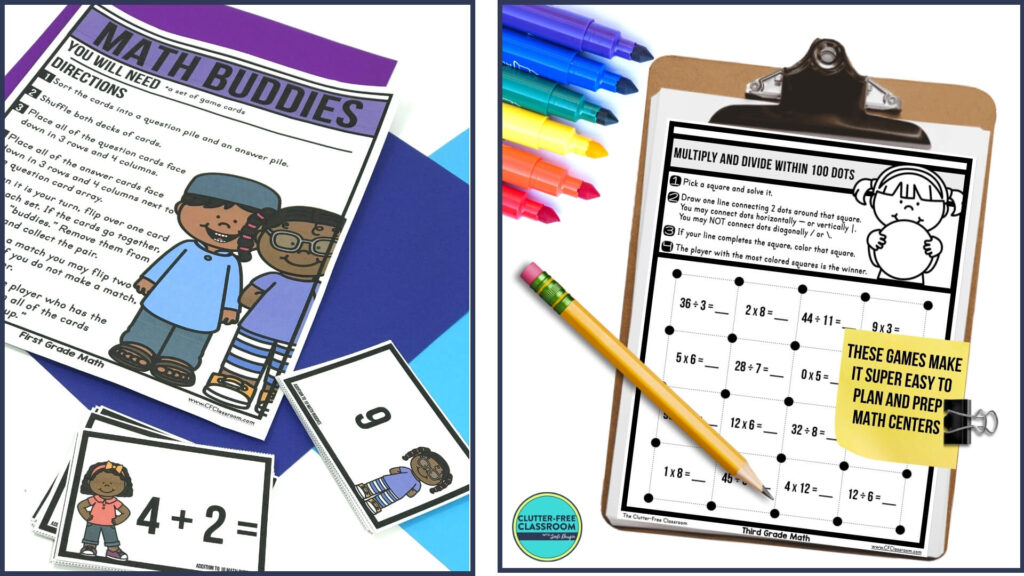
How to Introduce a New Math Game to your Class in 4 Easy Steps
When introducing a new math game to your class, consider following these four steps:
- Give an overview of the game and identify the concept or skill the students will be working on.
- Model how to play the game with a student while thoughtfully explaining how to play. Another option is to have you play against the class.
- Invite partners to practice the game and walk around to support groups as needed. Highlight good questions and important parts of the game using partners as examples.
- Pull the students as a whole group to reflect on the experience and answer questions.
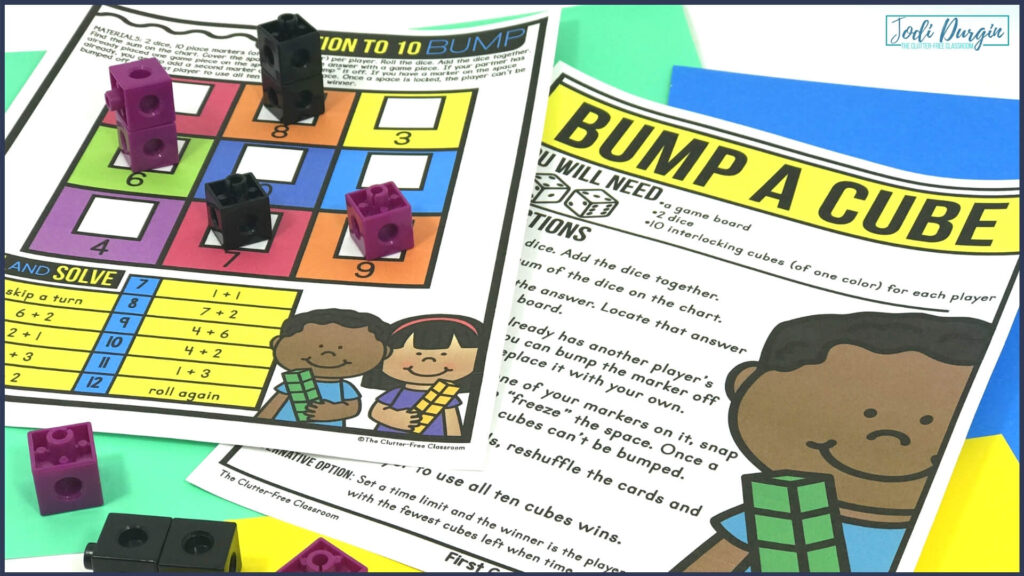
3 Ways to Hold your Students Accountable when Playing Games
Here are 3 strategies to help you keep your students on task during math centers and help make managing math stations easier:
- Require students to record equations or other work on the actual game or a separate document.
- Invite students to reflect on the experience and their work ethic in their journals.
- Reflect as a whole group on what went well with their partner, areas to improve, and how the math went.
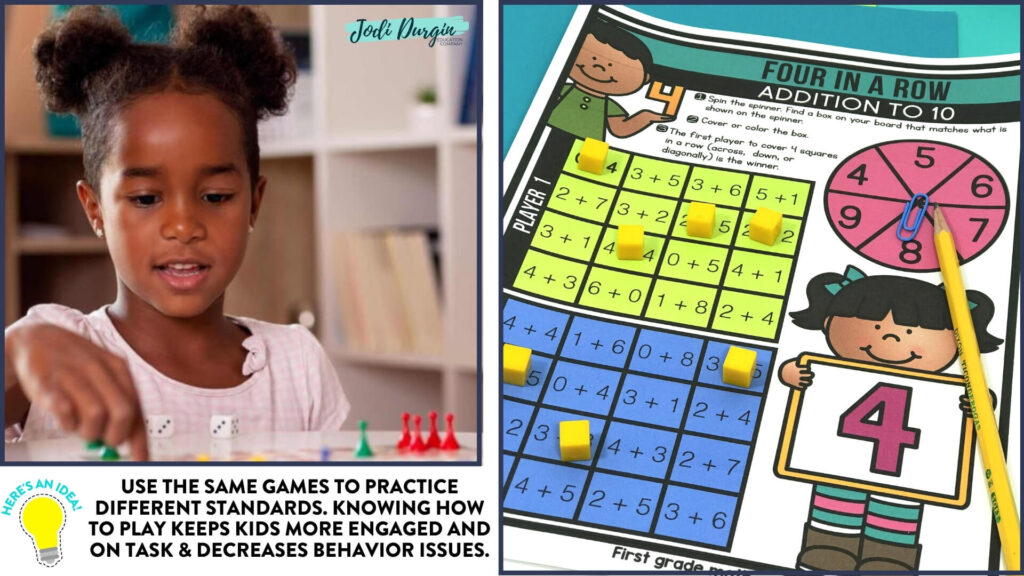
5 Math Center Classroom Management Challenges to be Prepared for and How to Overcome Them
Managing math centers can be challenging if you don’t have strong procedures and routines in place at the start of the school year. Read some common hiccups below, how to address them, and what you can do proactively to avoid them altogether.
1. Partners are arguing over who won or who is winning.
Response to Situation 1
- Start by giving the group a friendly reminder to use their problem solving skills.
- If the argument continues, then coach them through how to solve their problem while referring back to an anchor chart posted on the wall.
- If the argument persists, follow through on consequences.
Proactive Preparation for Situation 1
At the beginning of the year, explicitly teach a system of how to solve problems among friends and record the process on an anchor chart. Post the anchor chart on a wall in the classroom. In addition, ask your students when you are teaching a new game (or as needed) the following questions: 1) “Are we going to be upset when we don’t win?” 2) “Are we going to argue about who won and get upset?” and 3) “Does it matter who wins?” When doing this, encourage your students to respond collectively, “No!” after each question.
2. One partner is not using tools appropriately.
Response to Situation 2
- Start by reinforcing expectations by complimenting the student who is using tools appropriately.
- If the behavior continues, then review the expectations posted or projected on the wall with the child who is off task. Identify consequences if behavior continues.
- If the behavior persists, follow through on consequences and invite the child who is on task to join a different group.
Proactive Preparation for Situation 2
At the beginning of the year, explicitly teach how to use math tools appropriately and document your ideas on an anchor chart. Post the anchor chart on a wall in your classroom. In addition, ask your students when you are teaching a new game (or as needed) the following questions: 1) “Are we going to treat our tools like toys?” 2) “Are we going to use them this way (model inappropriate use)?” and 3) “How about this way (model another inappropriate use)?” When doing this, encourage your students to respond collectively, “No!” after each question.
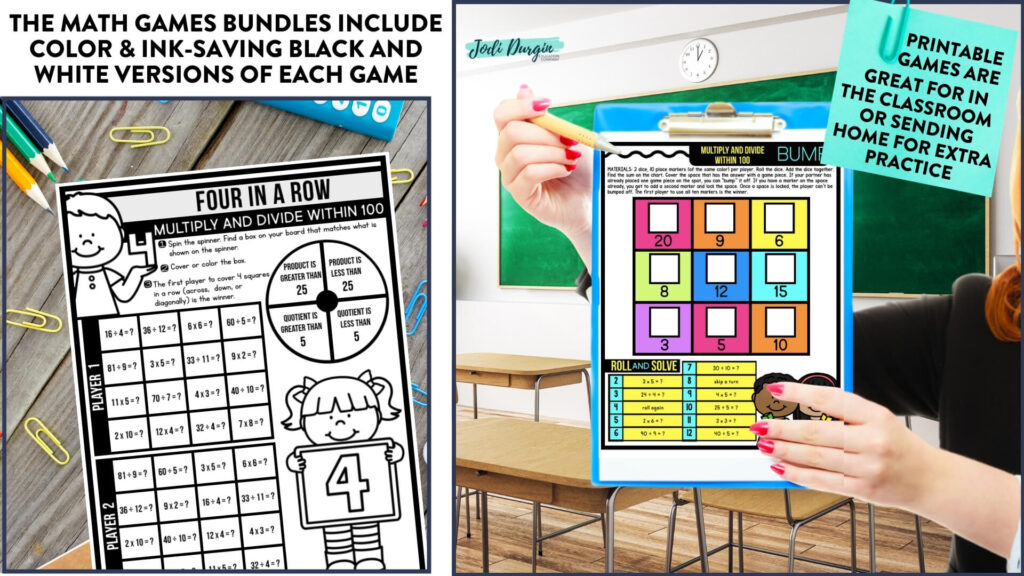
3. Both partners are not using tools appropriately.
Response to Situation 3
- Start by giving the group a friendly reminder to be on task.
- If the behavior continues, then review the expectations posted or projected on the wall. Identify consequences if behavior continues.
- If the behavior persists, follow through on consequences.
Proactive Preparation for Situation 3
At the beginning of the year, explicitly teach how to use math tools appropriately and document your ideas on an anchor chart. Post the anchor chart on a wall in your classroom. In addition, ask your students when you are teaching a new game (or as needed) the following questions: 1) “Are we going to treat our tools like toys?” 2) “Are we going to use them this way (model inappropriate use)?” and 3) “How about this way (model another inappropriate use)?” When doing this, encourage your students to respond collectively, “No!” after each question.
4. One partner is off task.
Response to Situation 4
- Start by reinforcing expectations by complimenting the student who is on task.
- If the behavior continues, then review the expectations posted or projected on the wall with the child who is off task. Identify consequences if behavior continues.
- If the behavior persists, follow through on consequences and invite the child who is on task to join a different group.
Proactive Preparation for Situation 4
At the beginning of the year, explicitly teach how to behave appropriately during math games and document your ideas on an anchor chart. Post the anchor chart on a wall in your classroom. In addition, ask your students when you are teaching a new game (or as needed) the following questions: 1) “Are we going to be off task when we are playing a game with our partner?” 2) “Are we going to be doing this (model off task behavior)?” 3) “How about this (model another off task behavior)?” When doing this, encourage your students to respond collectively, “No!” after each question.
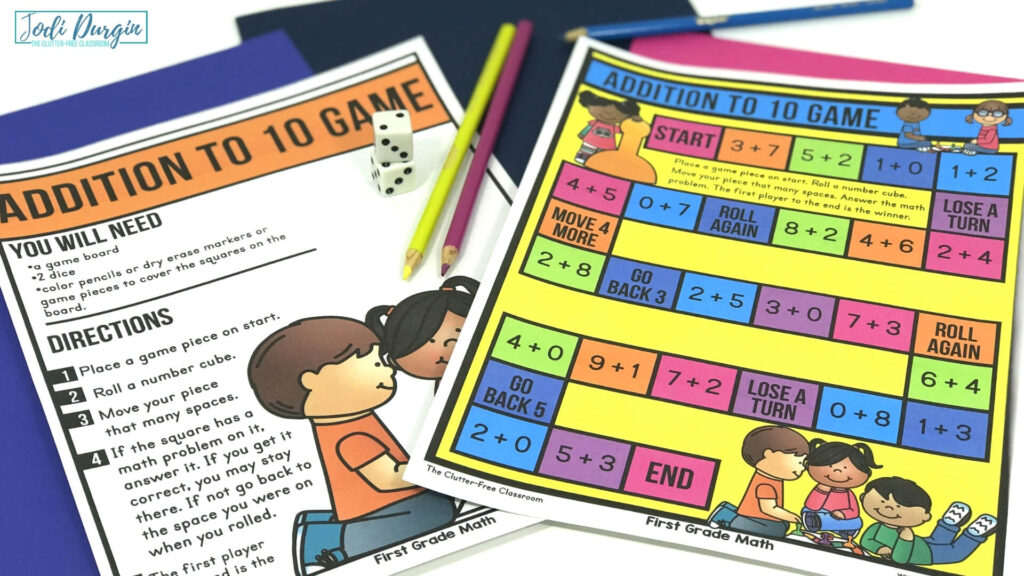
5. Both partners are off task.
Response to Situation 5
- Start by giving the group a friendly reminder to be on task.
- If the behavior continues, then review expectations posted or projected on the wall. Identify consequences if the behavior continues.
- If the behavior persists, follow through on consequences.
Proactive Preparation for Situation 5
At the beginning of the year, explicitly teach how to behave appropriately during math games and document your ideas on an anchor chart. Post the anchor chart on a wall in your classroom. In addition, ask your students when you are teaching a new game (or as needed) the following questions: 1) “Are we going to be off task when we are playing a game with our partner?” 2) “Are we going to be doing this (model off task behavior)?” 3) “How about this (model another off task behavior)?” When doing this, encourage your students to respond collectively, “No!” after each question.
Get These Math Games!
10 Fun Math Board Games
Here are 10 fun math board games your elementary students can play during math centers!
- Yahtzee
- Monopoly
- Trouble
- Life
- Bingo
- Mancala
- Qwirkle
- Sum Swamp
- Shoots and Ladders
- Sequence Numbers
5 Math Card Games For Kids
If you are looking for math card games for your elementary students to play with a partner or small group during your math centers, then check out the 5 games listed below. Your kids will love playing these math games with cards!
- Phase 10
- War
- Go Fish
- Uno
- Race to 100 (game with cards and dice)
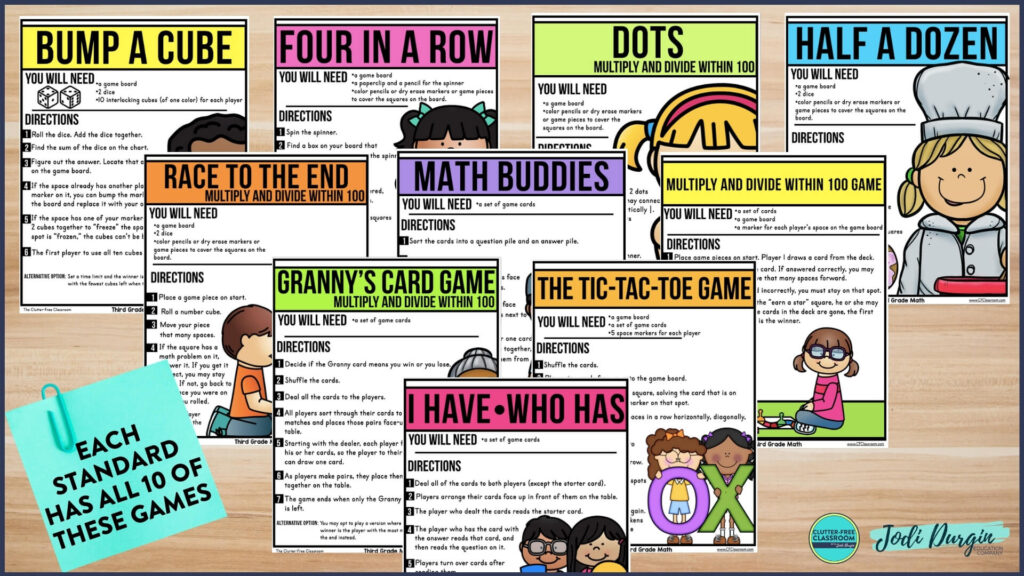
10 Printable Math Games for 1st, 2nd and 3rd Graders
These 10 printable math games are available in my 1st grade math games, 2nd grade math games, and 3rd grade math games resources and are aligned to the Common Core.
- Game Board
- Math Buddies
- I Have… Who Has…
- Tic Tac Toe
- Granny’s Card Game
- Dots
- Race to the End
- Half a Dozen
- Four in a Row
- Bump
Math Resources for 1st-5th Grade Teachers
If you need printable and digital math resources for your classroom, then check out my time and money-saving math collections below!
Free Math Resources for Elementary Teachers
We hope these math station ideas were helpful and would love for you to try these math games with your students during your math centers. They offer them opportunities to practice key concepts and skills in a fun and engaging way. You can download math game worksheets specific to your grade level (along with lots of other math freebies) in our free printable math resources bundle using this link: free printable math activities for elementary teachers.
Check out my math game resources!
